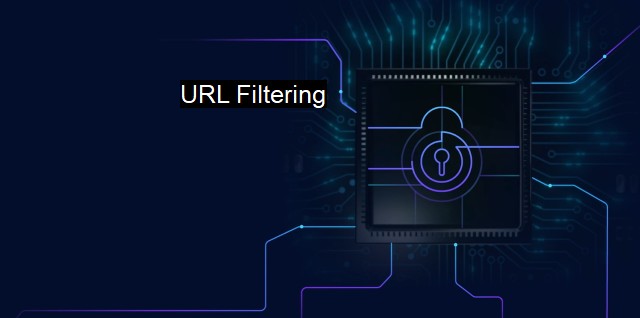What is URL Filtering?
Stay Safe Online: The All-Encompassing Power of URL Filtering for Cybersecurity
URL filtering is a method employed extensively in the cybersecurity and antivirus realm to protect an organization's network by restricting access to a list of specific websites or web pages that are deemed potentially harmful or inappropriate. It is an essential feature of a comprehensive internet safety strategy, aimed at blocking access to malicious websites and protecting a user's computer or network from a variety of web-based threats including malware, phishing schemes, and more.The term URL stands for Uniform Resource Locator, which is essentially the web address for a given webpage on the internet. URL filtering refers to the process where the URLs requested by users are checked against a database of known harmful, suspicious, or inappropriate URLs. If a match is found, access to the requested site is blocked or access is allowed.
An URL filter can work by blocking access to specific domains completely or selectively blocking access to certain web pages within a domain. The selection criteria can be based on a wide variety of factors including but not limited to specific domain names, words or phrases found within the URL or page content, meta tags or scripts.
In many instances, URL filtering uses regularly updated databases provided by cybersecurity firms to maintain a list of known harmful and inappropriate URLs. Internet threats and malicious websites become more complex and sophisticated every day, so these databases must be continuously updated to provide effective protection against most recent threats.
URL filtering software can be installed on individual computers or more commonly in business settings deployed across an entire network. When applied over a vast network, URL filtering security solutions can take the form of firewalls, proxy servers, routers, or directly within a network infrastructure.
One of the key advantages of URL filtering, particularly in the business context, is increased safety and productivity. By preventing access to harmful or inappropriate content, businesses can protect their digital assets and network security. by preventing access to non-work related sites, businesses can boost their employees' productivity significantly.
URL filtering also improves bandwidth efficiency. By limiting access to unnecessary and non-business-related sites, organizations can effectively optimize network performance, prevent network congestion, and reduce latency.
URL filtering software often includes reporting tools that assist in the monitoring and managing of web usage. This feature can reinforce an organization’s internet policy, help identify security risks early, decrease liability, and provide invaluable data to refine network security policy in an ongoing basis.
While URL filtering can be an effective aspect of a cybersecurity program, it should not stand alone. A comprehensive cybersecurity strategy should include multiple layers of protection such as network security controls, antivirus software, firewalls, intrusion detection, and education on safe web surfing among others.
To sum up, URL filtering is an important element of a robust cybersecurity strategy. It helps protect an organization from potential threats derived on the internet, improves network safety, increases productivity, assists in bandwidth management and provides considerable insight into web usage within the network. Given its effectiveness, it remains a critical tool for organizations seeking to minimize potential risks and to maintain the integrity and security of their tech infrastructure in the unforgiving realm of cyberspace.

URL Filtering FAQs
What is URL filtering?
URL filtering is a cybersecurity technique used to block or allow access to web pages or websites based on their URL addresses. It is a subset of content filtering and is commonly used by antiviruses to prevent access to malicious or unwanted websitesHow does URL filtering work?
URL filtering works by analyzing the URL address of a website and comparing it to a database of known malicious or unwanted addresses. If the website is found in the database, access is blocked, and if not, it is allowed.What are the benefits of URL filtering?
URL filtering helps prevent users from accessing malicious or unwanted websites, which can help prevent malware infections, phishing attacks, and other cybersecurity threats. It also helps organizations enforce internet usage policies and prevent employees from accessing inappropriate or non-work-related websites.What are the limitations of URL filtering?
URL filtering has some limitations, such as the difficulty in keeping up with new malicious or unwanted websites, the possibility of false positives (blocking legitimate websites), and the inability to detect threats embedded in encrypted traffic. Additionally, sophisticated attackers can bypass URL filters by using evasion techniques such as hiding the malicious code within legitimate websites.| | A | | | B | | | C | | | D | | | E | | | F | | | G | | | H | | | I | | | J | | | K | | | L | | | M | |
| | N | | | O | | | P | | | Q | | | R | | | S | | | T | | | U | | | V | | | W | | | X | | | Y | | | Z | |
| | 1 | | | 2 | | | 3 | | | 4 | | | 7 | | | 8 | | |||||||